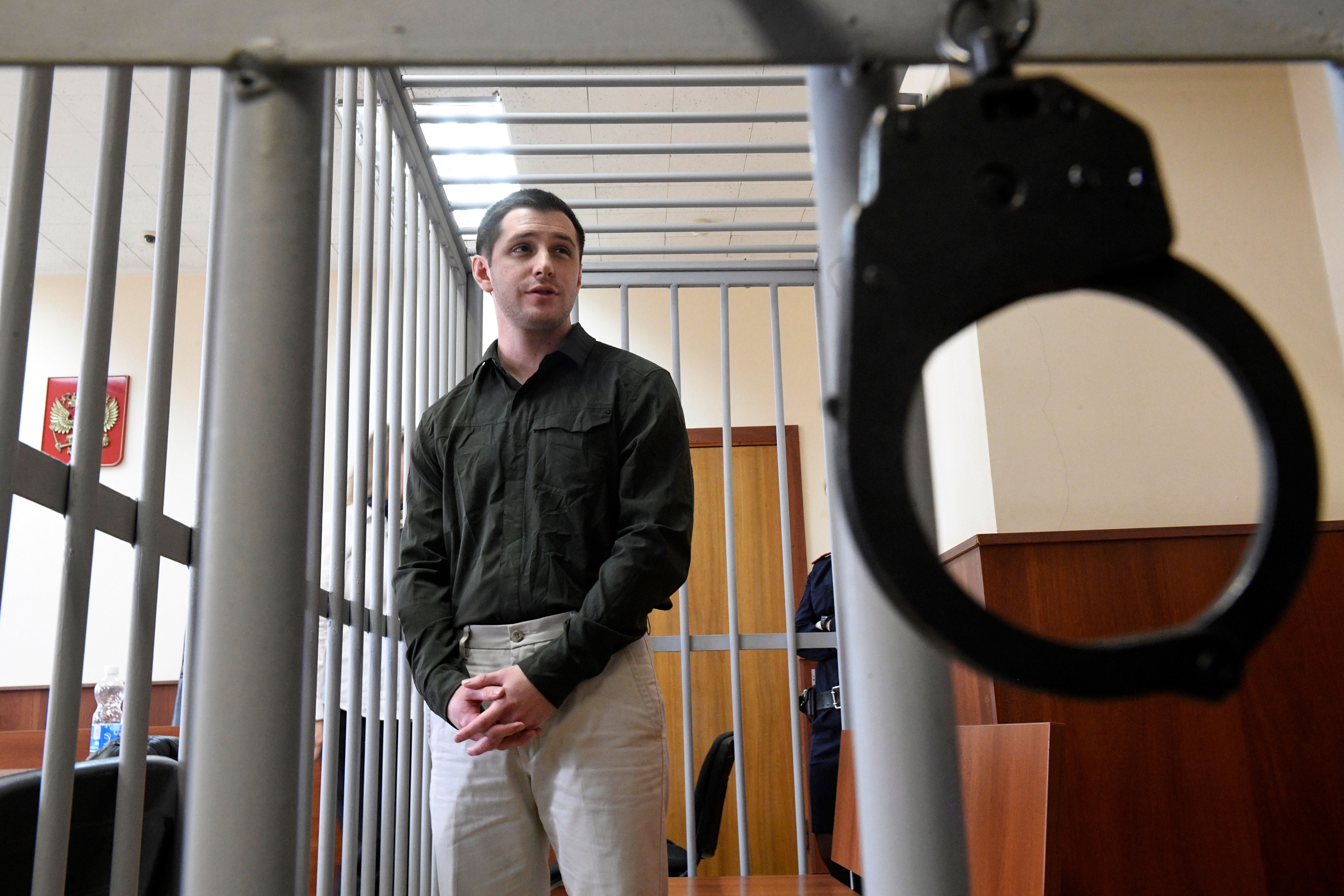Trevor Reed, US Marine freed from Russia in prisoner swap, injured fighting in Ukraine
American headed to Germany for medical treatment
Your support helps us to tell the story
From reproductive rights to climate change to Big Tech, The Independent is on the ground when the story is developing. Whether it's investigating the financials of Elon Musk's pro-Trump PAC or producing our latest documentary, 'The A Word', which shines a light on the American women fighting for reproductive rights, we know how important it is to parse out the facts from the messaging.
At such a critical moment in US history, we need reporters on the ground. Your donation allows us to keep sending journalists to speak to both sides of the story.
The Independent is trusted by Americans across the entire political spectrum. And unlike many other quality news outlets, we choose not to lock Americans out of our reporting and analysis with paywalls. We believe quality journalism should be available to everyone, paid for by those who can afford it.
Your support makes all the difference.Trevor Reed, a former US Marine freed from a Russian prison last year, was injured while fighting as an international volunteer in Ukraine, according to US officials.
A pair of defence sources told The Messenger that Mr Reed, who came back to the US in a high-profile prisoner swap in April 2022, stepped on a land mine in Ukraine and was not in the country acting on behalf of the US government in any way.
"Since the beginning of the war, we have warned that US citizens who travel to Ukraine, especially with the purpose of participating in fighting there, that they face significant risks, including the very real risk of capture or death,” one of the officials said.

A government source told The Associated Press Mr Reed "has traveled to Germany where he is receiving medical care.”
US officials are reportedly frustrated with Mr Reed’s actions, following considerable government efforts to release him, including the decision to release Konstantin Yaroshenko, a Russian cocaine smuggler serving a 20-year sentence in the US, in exchange for the American’s freedom.
Jonathan Franks, a spokesperson for the Reed family, declined to comment when reached by CNN.
In 2019, Mr Reed was arrested in Russia following a party after his girlfriend called police and asked them to take the man to a “drunk tank.” When she came to retrieve him, the American appeared to have been heavily injured and was under interrogation by Russian intelligence agents.
Mr Reed was eventually charged with violence against police officers, on claims he attempted to grab the wheel of a police car, endangering those inside the vehicle, and sent to a Russian penal colony.
International observers criticised the trial, and Mr Reed’s treatment in prison, where he staged a hunger strike.
When Russia first invaded Ukraine, Ukrainian President Volodymyr Zelenskyy put out a call for international volunteer fighters, calling them "friends of Ukraine, freedom and democracy.”
Since then, an estimated 20,000 volunteers from 52 countries have joined the war, many of them former US and British servicemembers.
The effort has been compared to the tens of thousands of volunteers who fought in the Spanish civil war in the 1930s, both for its international solidarity and for the fact that fighters in both conflict sometimes arrived with little training and poor access to supplies.
Under US law, citizens who join in foreign conflicts are in a legal grey area, depending on how they were recruited to fight, according to a recent article in the Columbia University Law Review.




Join our commenting forum
Join thought-provoking conversations, follow other Independent readers and see their replies
Comments